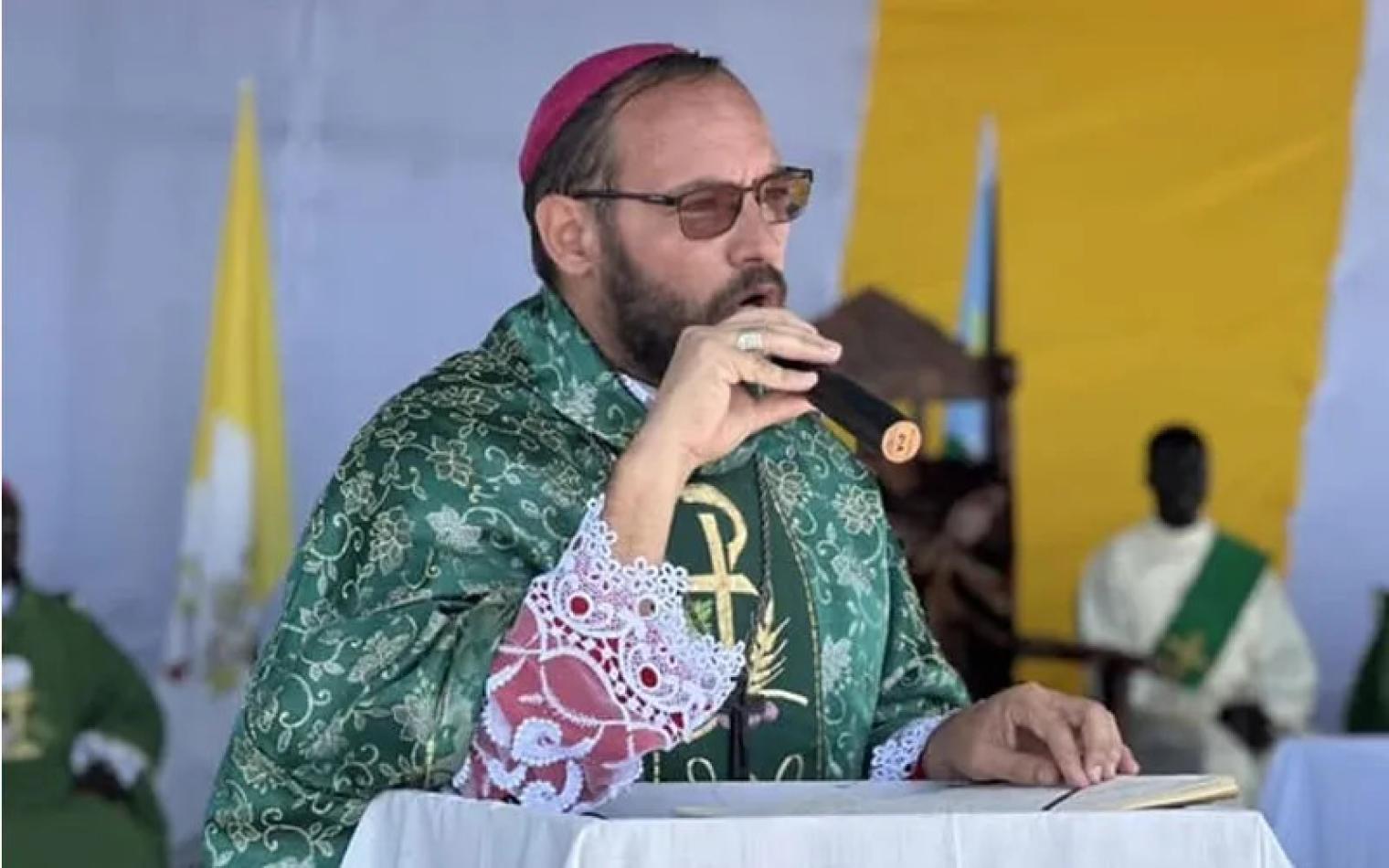Daniel Comboni
Comboni Missionaries
Institutional area
Other links
Newsletter
Saturday, January 11, 2025
As South Sudan, the world’s newest nation gears up for its first ever elections following years of civil war, a Catholic Bishop in the East-Central African nation has called for adequate preparations to ensure that the country undergoes a truly democratic process.
According to Bishop Christian Carlassare of the Catholic Diocese of Bentiu that was erected in July 2024, the country was “almost completely unprepared” for the elections that had been slated for later this year. President Salva Kiir Mayardit extended his government for another 24 months, postponing the country’s elections to December 2026.
In an article shared with ACI Africa, Bishop Carlassare says that South Sudan’s scheduled polls are “not just routine elections” as those in other countries that already have established electoral structures. He says that in South Sudan, attention should be given to election preparation, rather than the outcome of the polls. “These are not just routine elections like those held regularly in other countries, but the first elections since the independence of the fourteen-year-old new nation,” Bishop Carlassare says in the article he shared with ACI Africa on Thursday, January 10.
He adds, “The slogan ‘a bad election is better than no election’ does work in South Sudan. The electoral consultations must be prepared and carried out adequately based on constitutional rights for the sake of a true democratic process.”
“I believe it is more important to focus now on the process leading up to the elections than merely on the result,” the Italian-born member of the Comboni Missionaries of the Heart of Jesus (MCCJ) says, and adds, “There is no democracy from above; it has to mature from within and germinate at the grassroots.”
South Sudan’s Revitalised Transitional Government of National Unity (RTGoNU) was formed in February 2020 in line with the September 2018 Revitalized Agreement on the Resolution of Conflict in South Sudan (R-ARCSS).
The world’s newest country that gained independence from Sudan in July 2011 and plunged into civil war in December 2013 had scheduled general elections before February 2023. An agreement between the RTGoNU and the opposition was to postpone the elections to late 2024. Another postponement was reported, “owing to the continual delays in implementing crucial aspects of the 2018 peace agreement.”
Members of the Sudan Catholic Bishops’ Conference (SCBC) have called upon the South Sudanese government to seal all security loopholes and prepare adequately for the country’s elections. In his article, Bishop Carlassare has criticized the Tumaini (Hope) Initiative that aims to resolve conflicts in South Sudan as having yielded negligible results.
Launched in May 2024 by President Kiir, the initiative seeks to facilitate mediation between the Government of South Sudan (GoSS) and the Holdout Groups (HGs), who previously refused to sign the R-ARCSS agreement in Addis Ababa, citing concerns over unresolved issues. The initiative gained momentum after the endorsement by Kenya’s President William Samoei Ruto, and has since been a critical step in the country’s peace process. The initiative, Bishop Carlassare observes, “has been fraught with obstacles and barriers.”
“Till now, it is difficult to mention concrete positive fruits of the talks, if not only the fact that people are dialoguing rather than fighting,” he says. Meanwhile, Bishop Carlassare has pledged that the Diocese of Bentiu will work on civic education of the citizens and voters through the Diocesan Justice and Peace Commission ahead of the December 2026 polls. “We shall also value the subject of civic education taught in school,” he says, and adds, “It is a long process. The process must lead to the formation of a national consciousness and the building of the nation on the basis of the common good of all citizens.”
The Local Ordinary of Bentiu, who started his Episcopal Ministry in March 2022 in South Sudan’s Catholic Diocese of Rumbek, where he is the Apostolic Administrator says, “In the anthem of South Sudan, we hear about three foundational values: justice, liberty and prosperity. There cannot be one without the other. In the light of the Gospel and with the strength of our Christian faith, we will accompany this process.”
Agnes Aineah – ACI Africa




